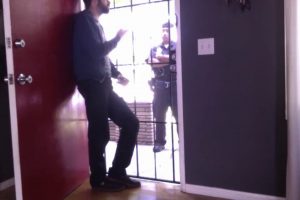Whether guilty or innocent, your constitutional rights should be your top priority after experiencing an arrest. This applies whether you are physically arrested on the spot or have just received notice of an arrest warrant. Continue reading to learn exactly what your constitutional rights are during the criminal justice process, and how to find skilled and aggressive criminal defense in Indiana.

Constitutional Rights and Amendments
Of the 27 amendments in the United States Constitution, there are 5 particular ones that protect the basic rights of criminals. These rights are offered to all U.S. citizens, and cannot be denied under any circumstances. They include the 4th Amendment, 5th Amendment, 6th Amendment, 8th Amendment, and 14th Amendment.
The 4th Amendment
This amendment provides protection to citizens in the case of arrests, searches, and seizures. It prevents law enforcement from implementing unlawful searches and seizures of property, as well as decrees the limitations and requirements for search warrants.
The 5th Amendment
The 5th amendment is particularly important for those suspected of a crime. It mandates that all citizens due process of law, as well as prohibits a person from being tried twice for the same crime, also known as “double jeopardy.” It also protects defendants from being forced to provide testimony against themselves: “nor shall [any person] be compelled in any criminal case to be a witness against himself.” This is often referred to as “pleading the fifth.”
The 6th Amendment
This amendment involves your rights to a “speedy and public” trial. It also provides your rights to an attorney and a trial by an impartial jury. This includes being informed of your charges and the evidence against you, and being permitted to be present when witnesses are testifying against you. It also allows you to call witnesses to your defense.
8th Amendment
The 8th Amendment gives citizens protection against excessive bail. This means that bail must be set at a reasonable and consistent rate, and match the type of crime. “(…) Excessive bail shall not be required, nor excessive fines imposed, nor cruel and unusual punishments inflicted.”
14th Amendment
The 14th Amendment specifically acknowledges how the law must abide by these rights when prosecuting a suspected criminal. Furthermore, it guarantees all citizens equal protection of the law, regardless of age, class, status, income, race, religion, or ethnicity. “…nor shall any State deprive any person of life, liberty, or property, without due process of law, nor deny to any person within its jurisdiction the equal protection of the laws.”
Do you want to avoid the maximum penalties and jail time for your current or pending criminal charges? Contact the Law Office of David E. Lewis at 317-636-7514 to schedule a free consultation with a seasoned Indianapolis Indiana criminal lawyer who will build you a strong and impactful defense.
You Should Also Read:
What are My Rights at Trial?
Which U.S. Amendments Protect Criminals’ Rights?
Understanding Your Miranda Rights




